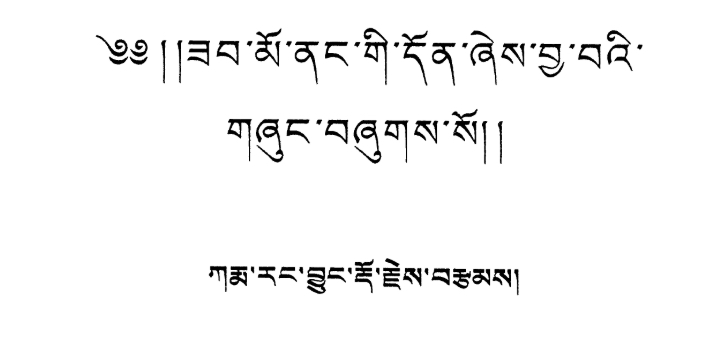Zab mo nang don
(Created page with "{{Text |TextClass=Commentary |FullTextEnglish=No |FullTextFrench=No |FullTextSanskrit=No |FullTextSktRoman=No |FullTextTibetan=No |FullTextChinese=No |FullTextPali=No |CoverFi...") |
No edit summary |
||
| Line 8: | Line 8: | ||
|FullTextChinese=No | |FullTextChinese=No | ||
|FullTextPali=No | |FullTextPali=No | ||
|CoverFile=File:Zab mo nang don-cover.jpg | |||
|CoverFileOrient=landscape (pecha) | |CoverFileOrient=landscape (pecha) | ||
}} | }} | ||
Latest revision as of 15:21, 20 April 2020
Rang byung's most famous, and perhaps most difficult work is yet another verse text, his Zab mo nang don, on the Anuttarayogatantras. This eleven-chapter work is thirty-two folios in length. According to a colophon provided by Kong sprul, it was written in the Water Male Dog year, 1322, at Bde chen steng. The colophons to the present redactions say only that it was written in the Dog Year. (Source: Schaeffer, K., The Enlightened Heart of Buddhahood, p. 16)
Access this text online
Philosophical positions of this text
Text Metadata
| Other Titles | ~ zab mo nang gi don ~ zab mo nang don rtsa ba ~ zab mo nang don zhes bya ba'i gzhung |
|---|


